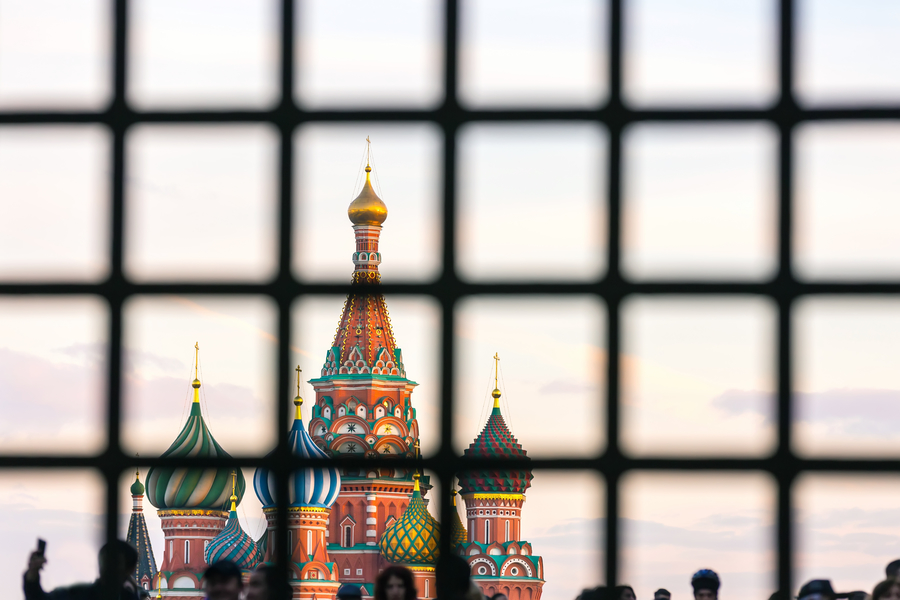The wave of international sanctions to hit Russia following its invasion of Ukraine on 24 February has left issuers with standalone Russia ETFs scrambling to understand what the impact will be to their products.
The unique structure of an ETF – which trades on both the primary and secondary markets – normally offers some level of liquidity in times of crisis, however, the size and speed of the suspensions and shutdowns across global markets left ETFs in an unprecedented position.
A few days after the invasion, the Moscow Exchange shut – leaving the world’s largest index provider MSCI to label the market “uninvestable” – in a move swiftly followed by ETF issuers suspending creation and redemption orders on Russian ETFs, closing primary markets.
Exchanges globally then halted trading of Russia ETFs until further notice, shutting off the secondary market, soaking up liquidity and cutting ETFs off as a form of price discovery and leaving them in a limbo normally reserved for illiquid mutual funds.
While the ETFs remain suspended on the primary and secondary markets, it is still possible that they are being traded over-the-counter (OTC), however, the nature of these off-exchange trades means their liquidity remains a mystery.
According to Bloomberg Intelligence, standalone Russia ETFs have seen almost all their $4bn assets under management (AUM) wiped off since the end of January, mainly as a result of issuers writing down the value of their Russian stocks rather than fleeing investors.
While the Russian market remains inherently illiquid – foreign investors are also barred from selling their Russian holdings – issuers will have some tough decisions to make on the future of their products.
‘Wait and see’ situation
While some issuers have been quick to take action to protect investors – BlackRock and DWS recently waived fees on their respective Russia ETFs – the biggest difficulty will be determining what happens next and for many it is too early to call.
Rebecca Sin, ETF analyst at Bloomberg Intelligence, said she believes there are four main scenarios facing Russia ETFs.
Firstly, ETFs could resume trading when the Moscow Exchange opens, the “best-case scenario for everyone”, according to Sin.
However, this would assume a speedy peaceful resolution with a complete reversing of the west’s sanctions on Russia, a scenario which many commentators believe is no longer feasible.
“Secondly, the ETF could be delisted. This could happen if the underlying securities are no longer trading, the shares drop in value or sanctions prohibit trading,” she said.
Monika Dutt, director of passive strategies research for Europe at Morningstar, said the appetite for investing in Russian stocks has been decimated and could see a scenario where issuers no longer want to run the products.
She said: “Right now, we are in a situation where a lot of institutional clients and retail clients might not want to hold Russia, either from an ESG perspective or a sanctions compliant perspective.
“If there is no more client demand then the asset managers will have to make the decision as to whether they want to offer the product and if it still aligns with its overall investment philosophy.”
The third scenario, and most unlikely according to Sin, would be to merge the products with other emerging market or global ETFs. “There have been scenarios where this has happened and is a possibility, but unlikely,” she added.
According to Sin, the final scenario – based on the ongoing uncertainty of the war – could see the ETFs halted for an unknown period, or as long as the Moscow Exchange remains closed.
Roxane Sanguinetti, head of strategy at GHCO, added it is just too early to call what decisions issuers will make on their ETFs.
“The Russian ETFs will stay suspended for as long as needed, and we are in a sort of ‘wait and see’ situation,” she said. “Even if issuers were to close the ETFs, they have no way to liquidate the assets as we do not know when the Moscow Exchange will reopen and if foreign entities will be able to access it. It is too early to call it.”
What about the underlying?
Despite the numerous possible scenarios, the outcome of differing ETFs could be determined by the type of underlying securities it holds.
For example, Sin said the liquidation potential is higher for ETFs that hold depository receipts, US or Europe-listed securities that represent ownership of underlying shares in a foreign company such as the largest standalone Russia ETF, the US-listed VanEck Russia ETF (RSX), or the iShares MSCI Russia ADR/GDR UCITS ETF (CSRU).
“The liquidation potential is higher for some ETFs than for others and this is down to the holding they have. RSX for example has over 80% of its holdings in London-listed depository receipts and is likely to liquidate, while an ETF that is all in Russian equities will be harder to liquidate,” she said.
“A lot of these ETFs also have options on the back which are currently halted and not able to trade. The impact of having Russian securities removed also affects the options market.”
In another ETF quirk, Dutt added investors were able to use the depository receipts as a price discovery tool when the primary markets first closed.
“With the primary market closed, people were using receipts as a price discovery tool. Now, the Moscow Exchange is closed, receipts suspended in the US and the UK so the ETFs are fully suspended,” she said.
“The asset manager is going to likely have to make the decision based on what is best for the business and the underlying investor.”
Related articles








